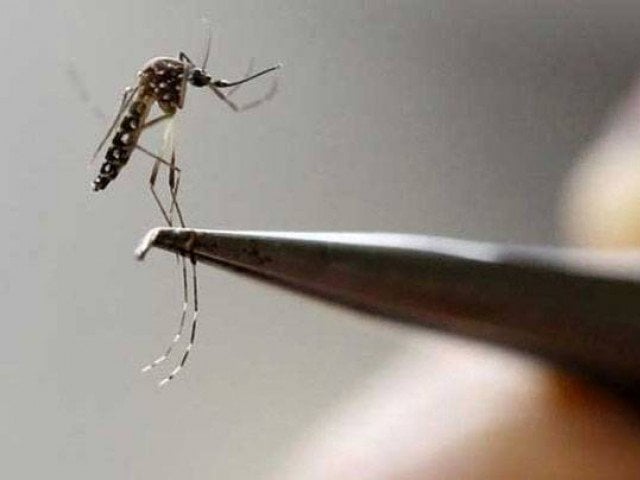
This was discussed in a meeting of the Khyber-Pakhtunkhwa (K-P) Public Health Committee (PHC). Health officials in the meeting discussed steps to prevent and control the spread of the dengue virus in the province including institutional arrangements, vector surveillance, disease surveillance, case management, health communication, and procurement of supplies with a special focus on line departments.
During the meeting, health officials stated that credible evidence showed that in a majority of the dengue cases reported so far this year, the vector had travelled from Punjab and Sindh.
“Mechanism for formal communication with other provinces should be developed to inform the concerned provinces about the case detected so that necessary measures are taken at their end,” read minutes of the meeting, a copy of which is available with The Express Tribune.
According to the minutes of the meeting, cases reported in the province so far this year are said to have same virus serotype DEV-2 as the virus reported last year. The committee further noted that it was reassuring to learn the findings since the introduction of another variant of the virus this year could have led to a severe outbreak of the dengue hemorrhagic fever and dengue shock syndrome.
“The After Action Review (AAR) of the 2017 outbreak has been conducted with assistance from the World Health Organisation (WHO) and a structured review process for analysing why it happened besides how things can be improved as compared to the last outbreak [are in place],” it read, adding, “AAR is in the draft phase and a final report will be shared by the WHO with the K-P health department soon.”
During the meeting, functions of the PHC were reviewed to ensure the implementation of International Health Regulations (IHR). Pakistan’s international health commitments were also discussed.
Considering the importance of the matter, it was decided that a separate meeting of K-P PHC be convened where the provincial health secretary suggested that a sub-group of health department — comprising members of different government departments who have already convened to discuss on IHR — should be held for handholding of other line departments.
“The health secretary suggested that after necessary orientation, other departments may present the status of IHR implementation pertinent to their departments in the forthcoming PHC meetings,” the minutes added.
To enhance the media drive against dengue, it was suggested that under the umbrella of corporate social responsibility, the Pakistan Electronic Regulatory Authority (PEMRA) should be requested to publish messages in the print and electronic media for free to prevent and control the spread of the dengue virus.
“All line departments should identify technical focal people for IHR and the development of multi-sector outbreak plans, ideally from the directorates, so as to ensure sustainability and technical inputs,” it noted.
During the meeting, the public health director said that work on setting up and operationalising the K-P Public Health Reference Laboratory (PHRL) was 90 per cent complete. This was endorsed by a representative from Khyber Medical University (KMU).
The health secretary stated some laboratories had been established with donor support. While they had started working, financial constraints meant that they could not continue working despite having highly sophisticated machinery.
“A group should be constituted — with representation from the finance, health and relevant line departments — to visit PHRL along with other labs of public health importance to identify financial needs required for sustainability and further improvement,” the minutes read.
An overview of the purpose and objectives of K-P Public Health (Surveillance and Response) Act 2017, was also presented during the meeting with a special focus on the functions and powers of the committee. Details of the operationalisation of the Provincial Disease Surveillance Centre (PDSC) was also shared.
Referring to the case of dengue reported earlier in the month, the public health director said that early detection of a cluster of dengue cases in union council Achini became possible after the availability of clear guidelines and prompt response of officials.
The director added that all vertical health programmes and concerned departments made part of the centre should ensure coordinated responses to emergencies and emerging threats.
In this regard, the establishment and operationalisation of district disease surveillance centres in all districts were also stressed.
Published in The Express Tribune, July 30th, 2018.
1732434981-0/BeFunky-collage-(10)1732434981-0-405x300.webp)










COMMENTS
Comments are moderated and generally will be posted if they are on-topic and not abusive.
For more information, please see our Comments FAQ